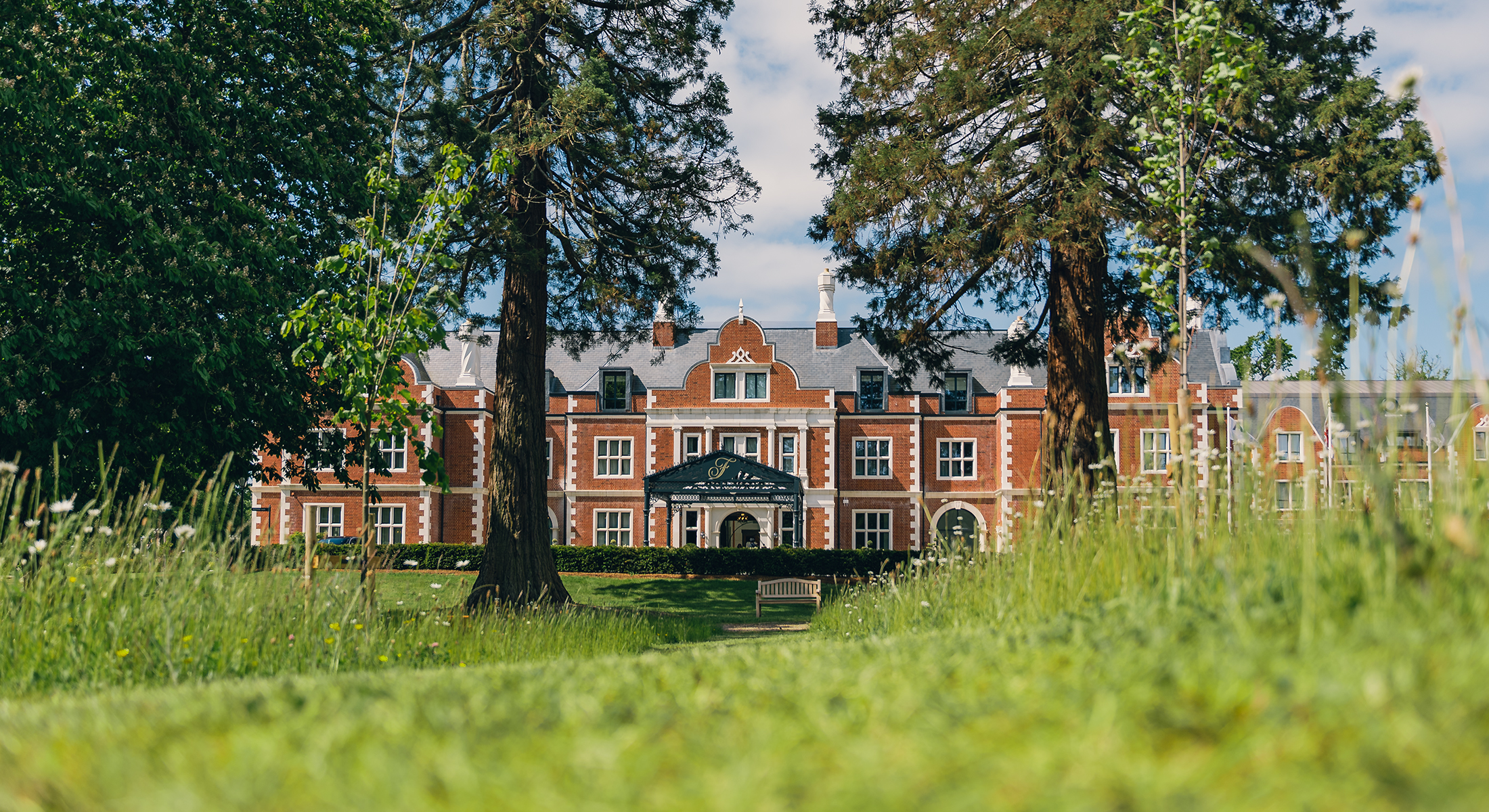- Hotel
- Rooms
- Queen Eaves Room
- King Eaves Room
- Fairmont King Room
- Accessible Fairmont King Room
- Fairmont Double Double Room
- Deluxe Double Double Room
- Deluxe King Room with Balcony
- Deluxe Double Double Room with Balcony
- Deluxe Double Double Room with Terrace
- Fairmont One Bedroom Suite
- Fairmont One Bedroom Balcony Suite
- Fairmont One Bedroom King Terrace Suite
- Luxury Two Bedroom Suite
- Luxury Two Bedroom Corner Suite
- Signature Royal Suite
- Families
- Dining
- Spa & Wellness
- Meetings & Weddings
- Offers
- Gift Vouchers
- Contact
Sustainability
In the face of pressing challenges such as climate change and resource scarcity, we proudly stand as a responsible business deeply committed to minimising our operational impact on the environment. Sustainable practices are not just an afterthought for us; they are at the very core of our business strategy, guiding us to conduct business in a way that aligns with our values and respects the environment. We recognise the vital role we play in the transition to a sustainable, low-carbon economy.
Our direct environmental impact spans across various aspects of our operations. We prioritise key areas, recognising that these have significant implications for resource consumption and carbon management. Our environmental management program extends beyond carbon, encompassing water, waste and paper, as we strive to holistically address our ecological footprint. Here you will discover the specific initiatives we’ve undertaken to weave sustainability into the fabric of our hotel’s identity. From eco-friendly amenities and sustainable sourcing to energy efficiency, water conservation, and pre-construction planning, each aspect has been meticulously designed to contribute to a more environmentally responsible and sustainable future. We embrace sustainability not as an obligation but as a fundamental principle, shaping the way we do business and caring for the planet we share.
Green Key is an international eco-label for tourism facilities. Since 1994, Green Key has been a leading standard of excellence in environmental responsibility and sustainable operation within the tourism industry. The Green Key programme is run internationally by the Foundation for Environmental Education. In England it is managed by the environmental charity Keep Britain Tidy.
Green Key provides a well-proven framework for an establishment to work with its environmental management on sustainability issues, including awareness raising. The high environmental standards expected of these establishments are maintained through rigorous documentation and frequent on-site audits.
Green Key is eligible for hotels, hostels, small accommodations, campsites, holiday parks, conference centres, restaurants, and attractions.
For guests, a Green Key shows that the establishment is committed to reducing the environmental impact of their stay. The Green Key programme is linked to the Sustainable Development Goals 2015-2030 addressed by the United Nations.

Eco-Friendly Amenities and Incentives
All bedroom keycards are made from 100% recyclable plastic and are collected and reused after a guest checks out. An effort to eliminate single-use plastic involves only using glass bottles, cardboard cups from recyclable materials, and eco-friendly Meeting & Events practices, including plastic-free tea bags and sugar sachets. Also, alternative options made from recyclable materials are used to replace plastic straws, stirrers and cotton buds. All our cleaning products, guest room bedding and towels have been carefully chosen for ecofriendly bases. The paints used at the hotel are eco-friendly and free of volatile organic compounds.

Sustainable Sourcing
Each of our carefully selected spa and wellness partners has been chosen not only because they make exceptional, market-leading products. It is also because they are pioneering in their commitment to preserving the source and regeneration of sustainable materials. It is a collective commitment to sourcing the best result-orientated ingredients that do not jeopardise our delicate ecosystems.
Spa consumables such as spa slippers have been selected to uphold our sustainability commitment. Our jute, coir and coconut slippers are made from the thickest and most resilient commercial natural fibres – a waste material extracted from the outer shell of coconuts grown on land throughout the tropics. This material has tremendous resistance to microbial action and requires no chemical treatment. Coir is a healthy substitute for processed synthetic rubber, and it is used in our slippers in combination with natural rubber latex sap.

Beehives and Garden
Two beehives on the hotel grounds are cared for by our beekeeper, who harvests fresh honey and supplies our restaurants. Our team also plants flowers and plants, bees and butterflies can thrive on within our 40 acres of grounds. Our chefs grow herbs and plants in our Kitchen Garden for use in several restaurants. Where possible, food is sourced locally from The Royal Farms and Windsor artisans.

Recycling
While hazardous waste and at least two types of waste are sorted from paper, glass, cardboard or plastic, a waste compactor is installed to ensure waste is transported efficiently. Recycling bins are also installed in guest rooms and meeting rooms to facilitate guests with recycling. Cooking oil and grease are collected and reused in the supply chain once recycled. Washing machines and dryers have residual moisture cycles, saving up to 12 minutes per cycle, the equivalent of 3 to 4 additional cycles in 8 hours. The machines are also highly insulated, reducing heat loss and saving energy costs.

Energy Efficiency
All guestrooms’ heating and cooling systems automatically turn off if the window is open to save energy consumption. Also, light bulbs used throughout the hotel are energy-efficient LED bulbs, and motion sensors are installed in all corridors, staircases, stores, staff changing rooms and guest rooms to reduce electricity usage. The hotel also offers four electric car charging stations for visitors to charge their vehicles on-site.
Combined Heat and Power – CHP
CHP is set as the central boiler, which captures and utilises the heat that is a by-product of the electricity generation process, this reduces mains gas and electricity usage.

Water Conservation
9pm water restrictions are fitted to all shower heads, and toilet flushing water levels are restricted to ensure water is not wasted.
Heat Recovery Units
To ensure maintaining the optimum temperature at the hotel doesn’t consume extensive energy, MVHR units are installed in all air handling units that recover bedroom, lobby and back-of-house temperature.

Pre-construction Planning
During the construction phase which began in 2018, we engaged with Arboriculture and Ecology consultants to ensure all the work was carried out with minimal impact on flora and fauna around the development. We installed four bat boxes within the brickwork of the building and tree-mounted boxes at various locations around the estate to ensure bats were not displaced before, during and after the development. When we removed the roof of the previous hotel, an ecologist was based on the site to inspect the area and ensure any bats still in the building could be rehomed.
All the wood chips used around the estate are made from trees that have fallen in storms or been removed to enable the hotel’s development. We installed full tree protection fencing around all protected trees during construction. Any landscaped areas we had to drive machines over had the soil de-compacted to ensure there was no damage to the tree root systems. We only removed trees approved by the local authority and planted more trees and vegetation than before at the new site.

Renewable Energy
We are incorporating combined heat and power units to generate carbon savings, reducing the energy demand of the building and then supplying the energy as efficiently as possible utilising low/ zero carbon (LZC) technology and renewable technologies. The most appropriate LZC technology was CHP (combined heat and power) due to the large and relatively constant domestic hot water load.
The CHP unit (combined heat and power) uses natural gas to produce electricity by means of a combustion engine. A by-product of this generation is heat, which ordinarily would be wasted but within the unit, the heat is recovered and used to heat the hot water to the hotel.


